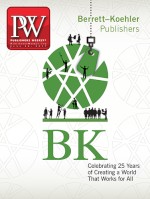How do booksellers, particularly small independent stores, respond to books that not only challenge their ability to host an event but likely offend their own political or moral principles?
At a BookExpo panel entitled “Selling Controversial Books,” a group of independent booksellers offered differing views on dealing with inflammatory books and their authors. The discussion, moderated by Chris Finan of the American Booksellers for Free Expression, also revealed differing views among booksellers about the nature of censorship in their business. Some questions raised (or implied) during the discussion by the panel and members of the audience include: Can declining to sell or stock a book be described as an act of free speech by a bookseller? When is a decision not to offer a book simply a merchandising decision and can it somehow undermine First Amendment protections? What’s an independent bookstore to do in a time of political upheaval?
A panel of booksellers that included Vanessa Martin of City Lights Books in San Francisco, Mitch Kaplan of Miami’s Books & Books, and Lissa Muscatine of Politics and Prose in Washington, D.C., cited a short list of controversial books and authors—among them The Satanic Verses, Madonna’s Sex, the Elders of Zion, and more recently, Milo Yiannopoulos’s upcoming Dangerous—that presented a range of challenges to indie booksellers.
For instance, an audience member asked, who pays for extra security when a store hosts an inflammatory author: the store or the publisher? Sometimes, Muscatine said, controversial authors bring their own security for public events, but sometimes the store pays.
Kaplan recapped his store’s history of dealing with “complaints about a book,” including complaints about not carrying a book. His first store, he said, didn’t carry the Bible. “That was our first experience” of controversy, he said. “So we started carrying the Bible.” At Books & Books, he said, “it’s a book-by-book decision” about what to sell or not sell. He noted that Books & Books “proudly stood tall” with publishers and continued to sell The Satanic Verses. Madonna’s Sex, he said, sold out, so they kept a copy and let people “take a look at it for $1,” and donated the money to charity.
When the lawyer for Casey Anthony, the mother acquitted of murdering her daughter, was slated to appear at Books & Books to promote his book Presumed Guilty: Casey Anthony: The Inside Story, Kaplan said his store “was inundated by calls protesting the appearance of ‘baby killers.’ ” In another instance, an appearance by terrorism expert Malcolm Nance to promote his book, The Plot to Hack America, attracted hecklers.
The panel repeatedly emphasized that the ultimate decision “depends on the store and how they see themselves and their community,” as Kaplan put it. But when the discussion turned to Yiannopoulos and his controversial book Dangerous (dropped by Simon & Schuster and due to be self-published July 4), there was some disagreement over what that caveat actually means in practice.
From the audience, Christin Evans, co-owner of the Booksmith in San Francisco and a director of Kepler’s in Menlo Park, suggested that the panel (and the ABA) wanted it both ways. She said that, while the ABA tells bookstores that it is an individual store’s decision whether to sell or not sell a book, the organization (as well as this panel, she said) criticizes stores that decline to carry inflammatory books. She cited reactions to Booksmith’s so-called boycott of Simon & Schuster over Dangerous and Yiannopoulos—“a person who has harassed people on Twitter and suppressed the speech of others,” she said—as an example.
According to Evans, her store’s boycott of S&S—really more a protest gesture than an actual boycott—was essentially a reduction in spending on certain S&S titles while continuing to spend on other S&S authors the store supports. She characterized the symbolic boycott as an act of free speech on the part of the Booksmith staff, as well as a show of support of the community the store serves. “We’re in a very left-leaning area, and the boycott was a postelection reaction to the Yiannopoulos book. We wanted to take an activist stand,” she said.
Responses from the panel that were critical of Evans’s store’s protest seemed, as she had suggested, contradictory.
Kaplan called the Booksmith effort “a slippery slope.” Panelist Vanessa Martin said a boycott was “not for City Lights,” even though she noted earlier that the store doesn’t carry books by conservative author Bill O’Reilly and would not special order one if someone requested it.
Muscatine, on the other hand, said, “We don’t want publishers telling us what to sell, and I won’t tell publishers what to publish.” She explained that “you assert and defend your principles and you decide what you will tolerate.” She said her store chose to respond to the controversy around Yiannopoulos by “reinforcing our principles as overtly as we could. We offered teach-ins on topics such as race, and we work to diversify our staff and our inventory.”
Muscatine also seemed skeptical of the Booksmith “boycott,” noting that “we don’t want to be in the business of upending the First Amendment case by case.”



 Volume 264
Issue 26
06/26/2017
Volume 264
Issue 26
06/26/2017





